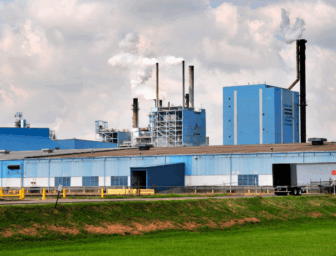The Chesapeake Climate Action Network today praised the Maryland General Assembly for approving strong legislation to address global warming in Maryland. The Greenhouse Gas Emissions Reduction Act, SB 278 and HB 315, will protect Maryland’s environment and economy while also spurring strong action at the federal level to address global warming nationwide.
FOR IMMEDIATE RELEASE: April 14, 2009
Contact: Mike Tidwell, 240-460-5838
Holly Gorman, 240-396-2146
Maryland Passes Carbon Cap with Strongest Short-Term Target in Country
Strong State Bill Encourages Federal Action
ANNAPOLIS -The Chesapeake Climate Action Network today praised the Maryland General Assembly for approving strong legislation to address global warming in Maryland. The Greenhouse Gas Emissions Reduction Act, SB 278 and HB 315, will protect Maryland’s environment and economy while also spurring strong action at the federal level to address global warming nationwide.
“This is a landmark moment for Maryland,” said Mike Tidwell, director of the Chesapeake Climate Action Network. “The bill positions the state to be a leader in the fight against global warming and ensures that we’re ahead of the curve as the federal government begins to contemplate action.”
The bill requires the state to cut greenhouse gas emissions 25% below 2006 levels by 2020 and directs the Maryland Department of the Environment to craft a plan and a timeline to achieve that goal. With this bill, Maryland joins six states in enacting a legally binding goal for emissions reductions. Maryland’s short term target is the strongest of all the states with legislative commitments to reduce pollution.
The Greenhouse Gas Emissions Reductions Act is similar to last year’s Global Warming Solutions Act, a bill that enjoyed broad public support but died during last year’s General Assembly session. This year’s bill was a result of a series of facilitated talks between stakeholders. Leaders within the Maryland climate movement spent several months participating in talks to work out an effective, fair agreement with union and business leaders.
Throughout the entire process, supporters of the Greenhouse Gas Emissions Reduction Act argued that the bill would be a big step for Maryland but must be complemented by a simultaneous and very strong federal carbon cap that level playing field for our state’s industries and workers.
“Having Maryland join six other states in calling for statewide reductions is a major step forward, said Sen. Pinsky, the Senate sponsor of the bill. “The more states that take an aggressive role in reducing greenhouse gases, the greater the pressure on the U.S. Congress to take a similarly strong position.”
Yesterday’s passage of the Greenhouse Gas Emissions Reduction Act was the result of sustained efforts from dedicated citizens, business leaders, environmental groups, and religious and health organizations. The coalition formed to raise awareness about the bill consisted of Environment Maryland, the Maryland Student Climate Coalition, the Chesapeake Sustainable Business Alliance, Physicians for Social Responsibility, the Lutheran Office on Public Policy, Maryland League of Conservation Voters, the Maryland chapter of the Sierra Club, and other environmental groups.
The General Assembly also passed several other key environmental bills yesterday. As the session came to a close yesterday, legislators passed HB 268/SB 992, aimed at promoting “green-collar” jobs in the state.
“Passing the green jobs bill, which allocates money for green job training programs, is a great first step towards reaching the Governor’s goal of creating 100,000 green jobs in Maryland by 2015,” said Lisa Lincoln, Outreach Coordinator for CCAN.
The state legislature also improved the energy efficiency of Maryland buildings, passing a law that will require building codes to match international standards on energy efficiency. By doing so, Maryland can reduce electric energy consumption for consumers by over 264 million kilowatt-hours in 2015, enough to meet the needs of over 20,000 typical Maryland households that year, as well as reduce global warming pollution.
Overall, the environment fared well this legislative session although there were several setbacks. Funding for energy efficiency and renewable energy was cut from the revenues generated by auctioning carbon credits under the Regional Greenhouse Gas Initiative. The budget for efficiency and renewable energy was cut from 60 million to 25 million for two years beginning in fiscal year 2010.
“This is especially disappointing given the potential for creating thousands of new green jobs through investments in energy efficiency and renewable energy,” added Ms. Lincoln
The Chesapeake Climate Action Network and other groups were also disappointed that the bill to halt construction of the Inter County Connector (ICC) failed. The ICC will destroy some our region’s last and best wetlands and forests and increase fuel consumption, air pollution and greenhouse gas emissions.
###




